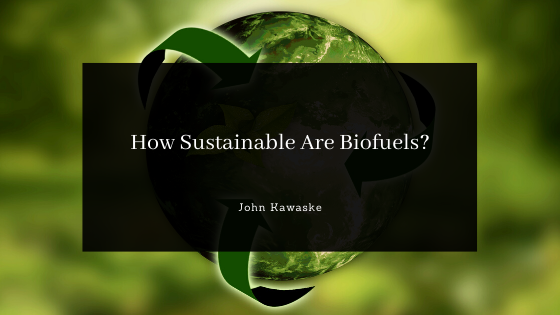Biofuels serve as an alternative to traditional fuels like coal and petroleum. Many environmental advocates support the expanded use of biofuels as a way to reduce the use of fossil fuels. Governments and policy groups have prioritized reducing fossil fuel consumption, hoping to instigate an energy revolution in favor of more renewable, sustainable types of fuels.
The key issue with fossil fuels is that they are unsustainable in the long term. Eventually, supplies will run out, forcing industries and consumers to turn to alternative energy sources.
An even more pressing issue is that fossil fuels pump enormous amounts of carbon dioxide into the atmosphere, causing major disruptions to fragile ecosystems and increasing the intensity and frequency of natural disasters like hurricanes.
Biofuels offer an attractive alternative to fossil fuels. But are they sustainable? Here are some of the concerns over biofuels in terms of sustainability, and ways in which biofuel experts hope to combat them.
Fuel vs. Food
One of the primary concerns within the biofuel industry is the competing nature of fuel and food. Both biofuels and foods must be developed on large farms, requiring large amounts of land and resources. This brings enormous costs as well as serious economic concerns about the changing nature of fuel production and how it might affect the agricultural sector. Will that industry have to make choices and draw lines in the sand between developing fuel and developing food?
Reports on the debate in the European Union have brought to light many of the strategies needed for overcoming the conflict. For starters, experts suggest the balance of food and fuel is a necessary one, to avoid oversupply of grain damaging agricultural markets without leading to food shortages. The reports found that biofuel can even help struggling farmers and their farms, offering alternative streams of income for professionals in the agricultural industry.
Deforestation
Deforestation is a major ecological issue in countries around the world. As forests are cut down to make way for crop production, one of the richest sources of novel flora and fauna is being lost. Entire species are wiped out forever each day as farmland encroaches on what was formerly wild growth.
Importantly, trees provide a counterbalance to the large-scale CO2 emissions of fossil fuels because they soak up the carbon dioxide and release oxygen. When these resources are lost, the environmental impacts of climate change become more severe.
While biofuels are an interesting potential alternative to fossil fuels because they do not result in the same carbon footprint, they also present a unique set of environmental concerns that should not be ignored.
The key here is regulation of biofuel production and continued research into efficient technologies for harvesting and growing biofuels. Research by biofuel experts found that climate, geographic location, and fertilizer levels have significant impacts on the rate of biofuel production for a given area. While land is certainly necessary for development of biofuels, additional research is the keystone to analyzing methods of production and finding the most efficient, effective means of producing biofuels.
John Kaweske of Colorado Springs is a biodiesel fuel and technology expert. As President of Bio Clean Energy, S.A., he draws from 20 years of professional experience to offer valuable insight into the industry. When he isn’t working on clean energy efforts, he’s spending time with his family and practicing daily meditation.

